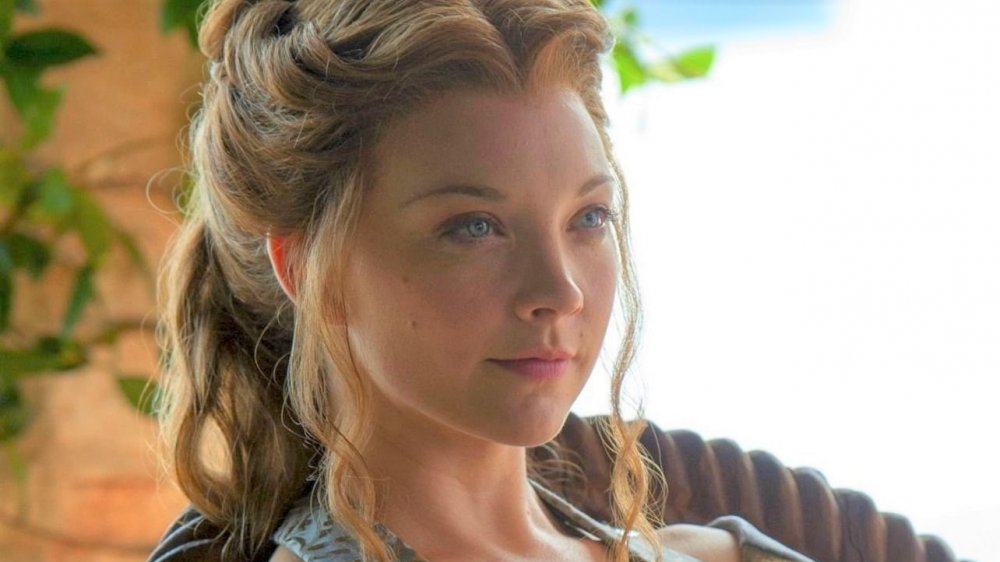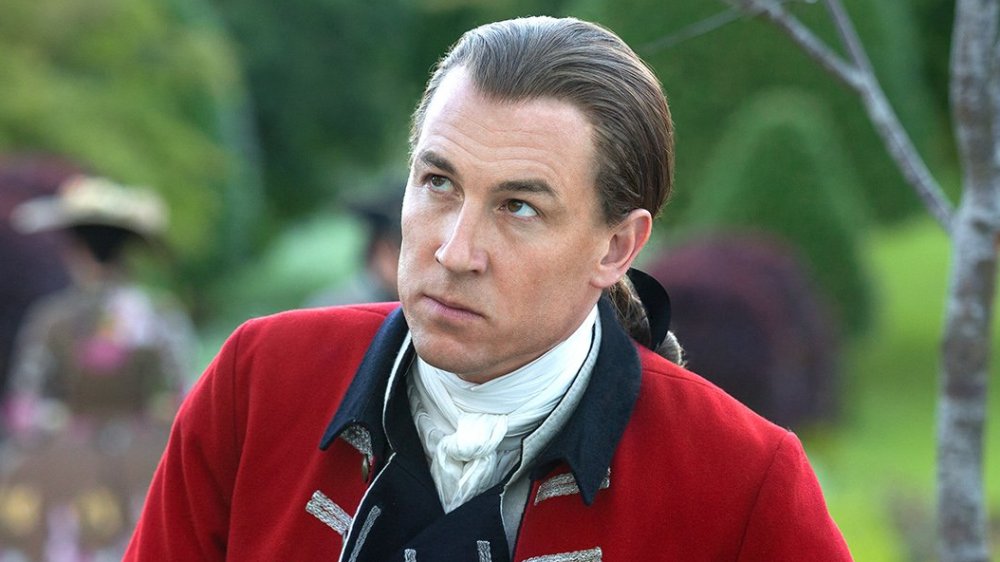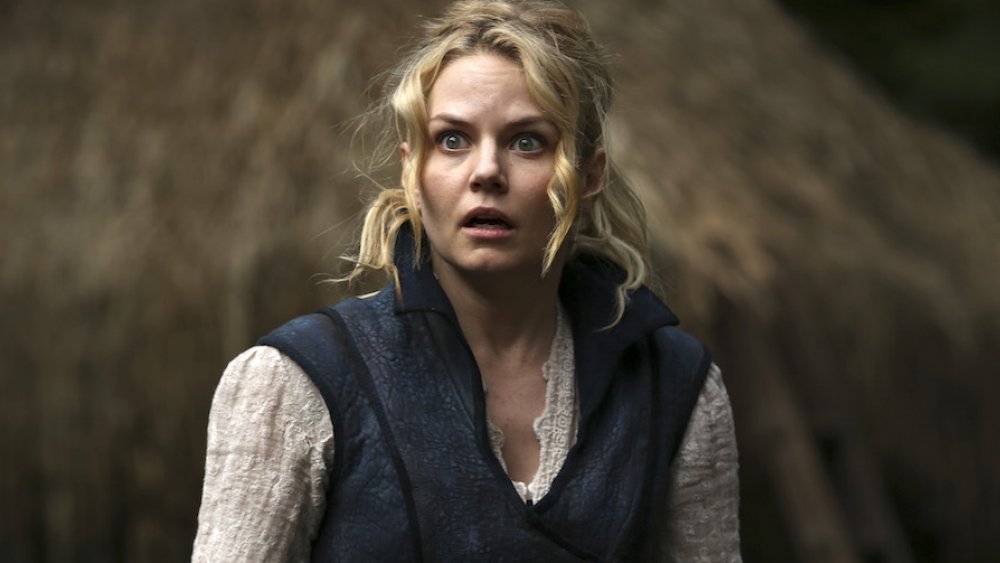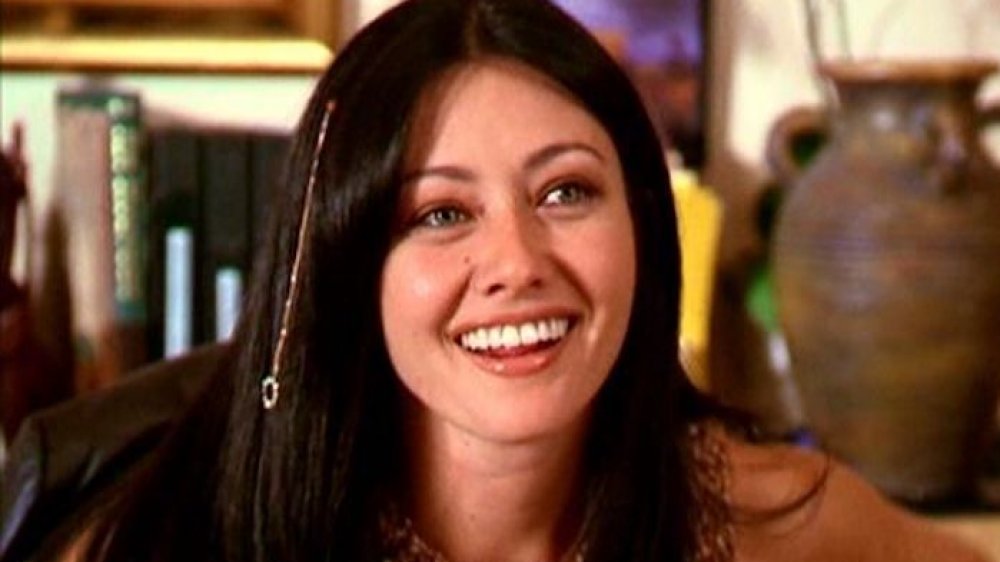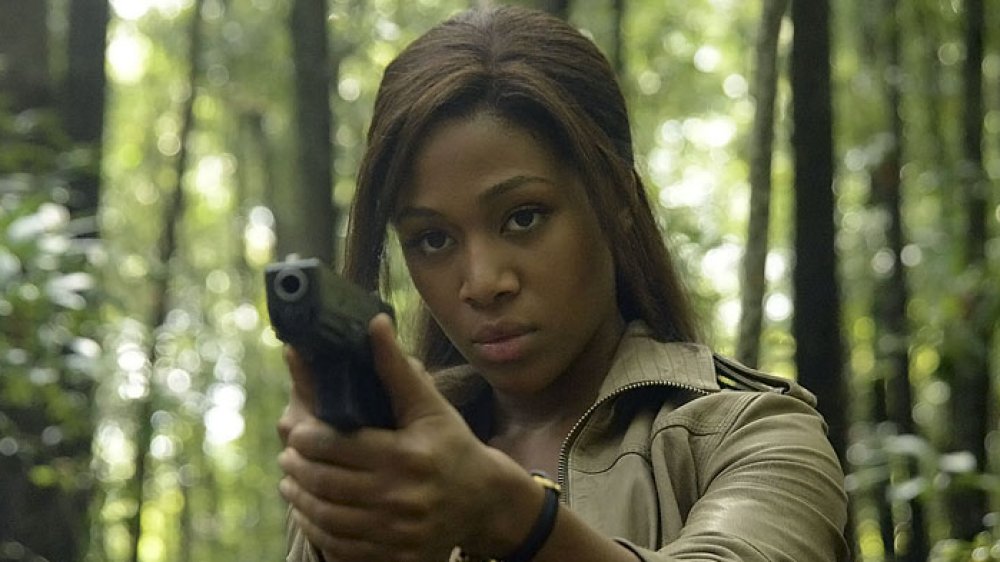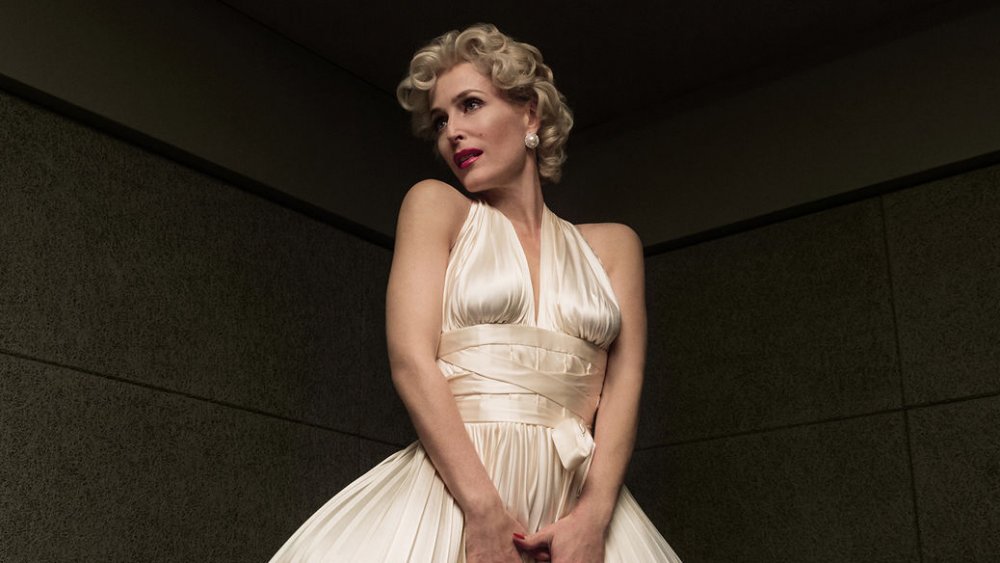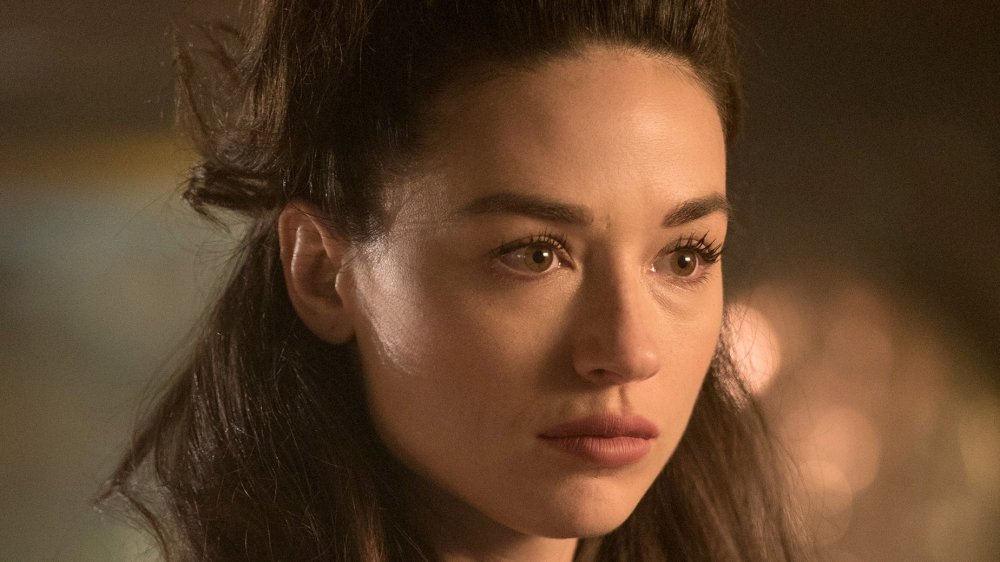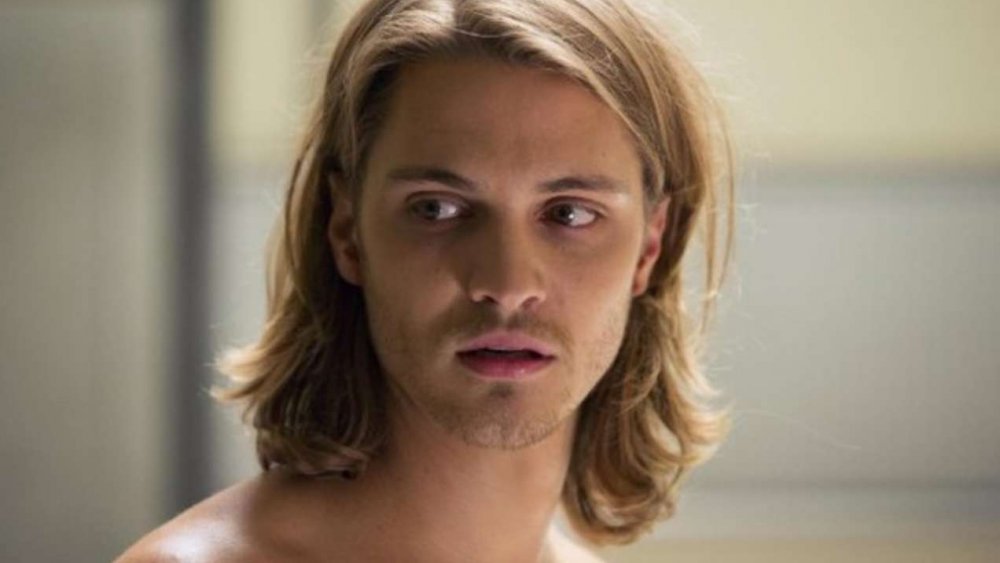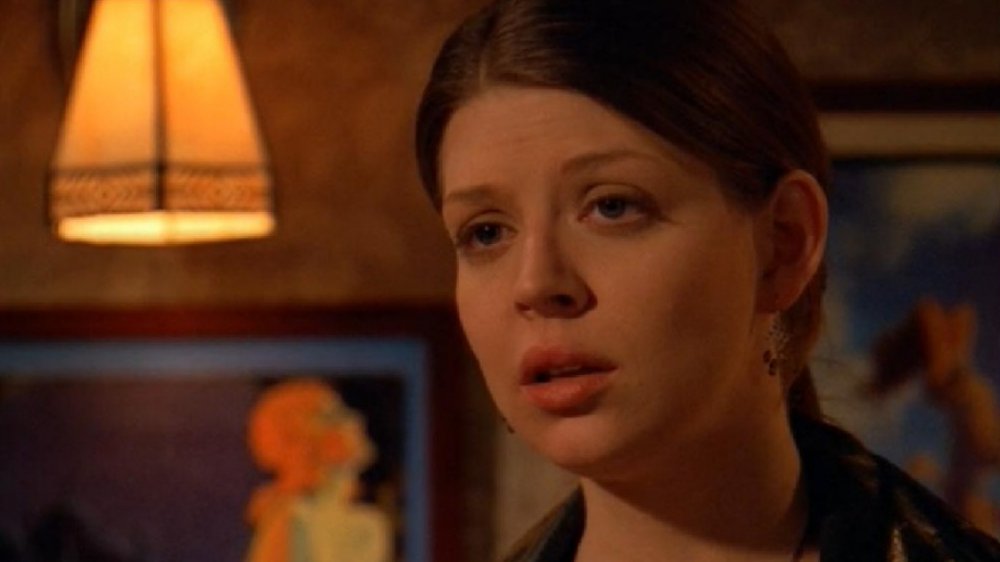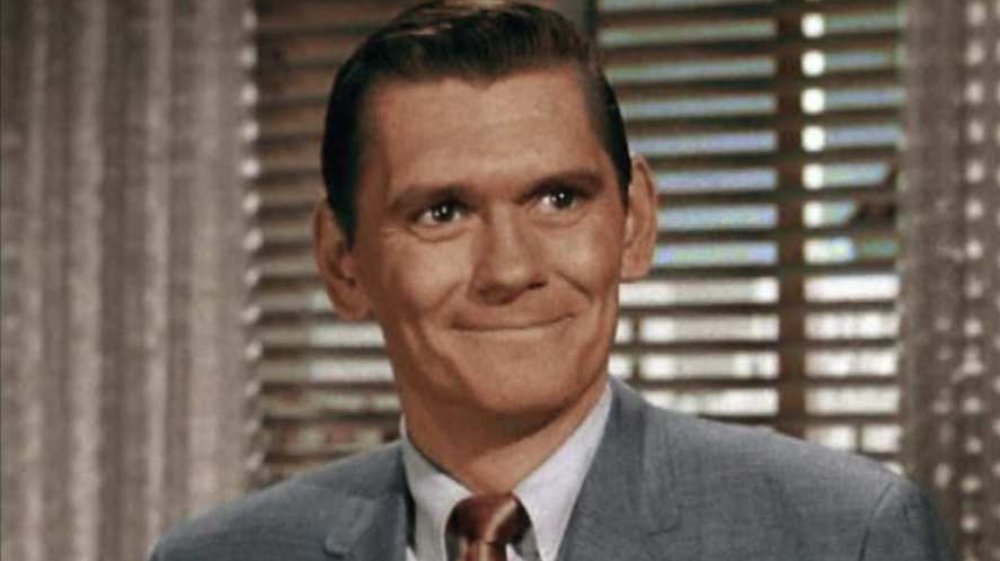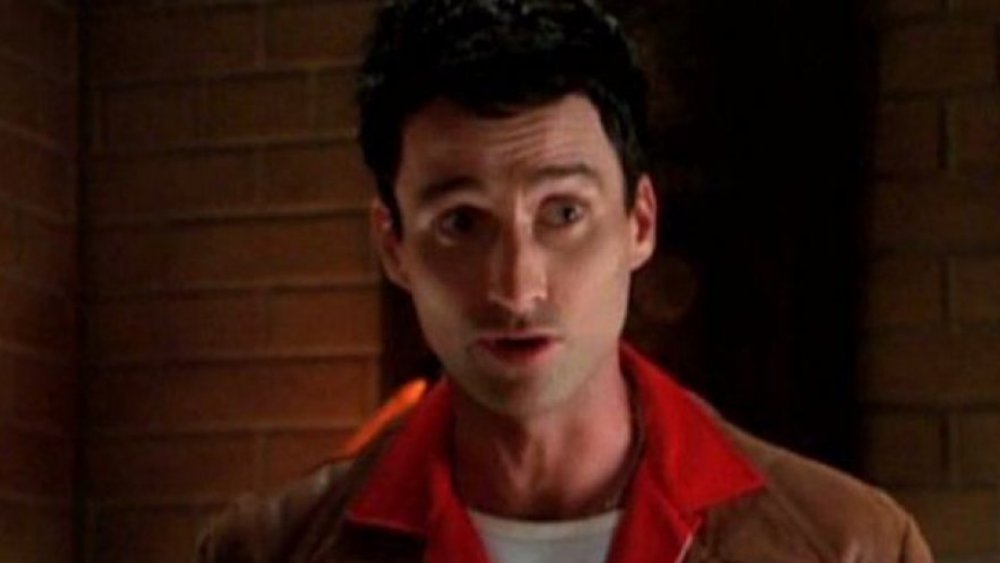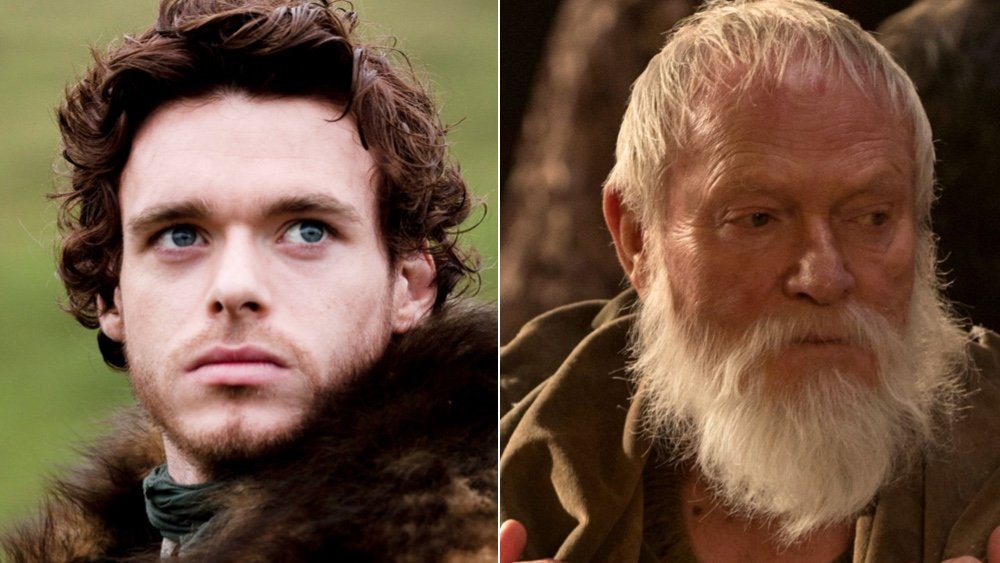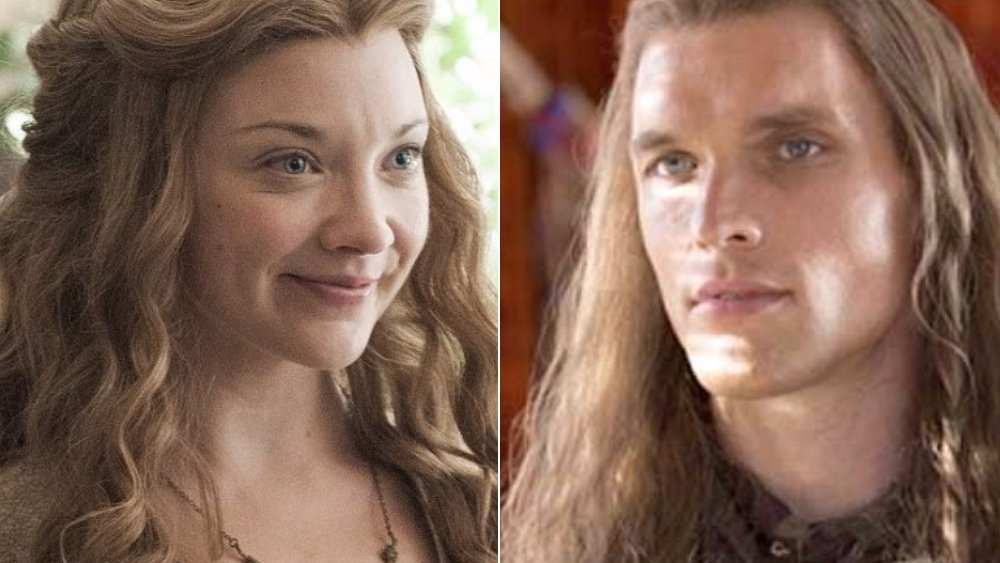The Real Reason These Actors Left Popular Fantasy Shows
Everybody loves a good fantasy story, whether it's a fairy tale, a novel by J.R.R. Tolkien, or a blockbuster movie. However, in recent years, fantasy has found its true home on television. Each week, fantasy TV series can pull in millions of viewers looking to escape their lives for a while by visiting wondrous lands where mythical creatures and magic are real.
As a result, it can be very beneficial to the life of an actor to land a role in a fantasy television series. These performers are bound to receive fame and adoration, as well as career jump-starts and lots and lots of money. And yet many choose to walk away from such a sweet gig and its bountiful benefits. Of course, they have their reasons. Perhaps filming a technically complicated show or one that's on location was a brutally taxing grind, or maybe they no longer cared for the material. Or maybe the show's writers and producers decided to get rid of their character. From medieval tales to vampire stories, here are the real reasons these actors left popular fantasy shows.
Be warned — there are some spoilers below.
Tobias Menzies died on Outlander ... both of him
Outlander is part historical epic, part sweeping love story, and part time-traveling sci-fi/fantasy adventure. Somehow, it all works, with Caitriona Balfe portraying Claire Randall, a World War II-era woman who stumbles into a time portal that transports her back to 1743 Scotland, where she falls in love with Jamie Fraser (Sam Heughan), part of a freedom-fighting clan of Highlanders on the run from sadistic British captain Jonathan "Black Jack" Randall. Portraying this villain, we've got actor Tobias Menzies, who also plays Frank Randall, Claire's 20th-century husband and a Black Jack descendant.
By the third season of Outlander, Claire has returned to the 1940s, pregnant with 1740s Jamie's child. In the 2017 episode "The Battle Joined," Jamie nearly dies at the historical Battle of Culloden, but he kills Black Jack in the fighting. That knocked Menzies down to just one role, Frank, who, just two episodes later and after agreeing to raise that baby as his own, asks Claire for a divorce and then dies in a car accident. That was all according to Outlander writers' plans, more or less following the same trajectory as Gabaldon's books. "It's the end of three and a half years," Menzies told The Hollywood Reporter. "I worked hard on both of these characters. It was a challenge to make them different."
Once upon a time, the Once Upon a Time cast fled all at once
For six seasons, Once Upon a Time wove an elaborate tale incorporating familiar fairy tale figures and folk heroes with Disney icons. This realm-hopping story of good vs. evil involved everyone from Aladdin to Robin Hood to Elsa from Frozen. While season six was in production, a seventh season wasn't a guarantee, but by the time it looked like ABC would order it, lead performer Jennifer Morrison had decided to leave. "I spent six years year on House, a year on How I Met Your Mother, and spent six years on Once Upon a Time, and collectively that's 13 years of network schedule, which is an amazing and incredible gift, but it's a grueling schedule," Morrison told Deadline.
Within days of Morrison's announcement, co-star Rebecca Mader (Zelena) announced she was leaving, too. On the heels of that news, four more actors revealed their intentions to quit the show: Ginnifer Goodwin (Snow White), Josh Dallas (Prince Charming), Emilie de Ravin (Belle), and Jared Gilmore (Henry). Following this, one of the biggest mass cast exoduses in TV history, the seventh season of Once Upon a Time had to go in a new direction, employing a time jump many years into the future, focusing on a now-adult Henry played by Andrew J. West.
Shannen Doherty found Charmed overly juvenile
Shannen Doherty is best-known for two 1990s television series, both of which were executive produced by Aaron Spelling and both of which she left in spectacular fashion. As Brenda, one-half of ultimate '90s TV teen couple Brenda and Dylan on Beverly Hills, 90210, Doherty became a star and a teen idol, and then she got fired in 1994 for starting a lot of off-screen drama, reportedly culminating in a fistfight with co-star Jennie Garth. Cast member Tori Spelling told her father, Aaron Spelling, who orchestrated Doherty's departure.
Just four years later, the elder Spelling hired Doherty for the role of Prue Halliwell on The WB's Charmed, a soap opera of supernatural proportions about a trio of San Francisco sisters who are also extremely powerful witches. This time, Doherty wasn't fired — she quit, leaving after three seasons in 2001. Charmed producers replaced her role in the witchy trinity with Rose McGowan as an heretofore unknown Halliwell sister, Paige.
Not long after the switch, Doherty told Movieline that she'd left the fantasy series because she felt her acting skills weren't being properly used or appreciated. "There were a couple of moments when I gave the most brutally honest performance I could ever have given as an actor. What you saw came from my gut," Doherty said. "And when I looked at those moments, I knew that they weren't being given their proper due because they were on Charmed. It's a show for 12-year-olds!"
Nicole Beharie fell ill and was forced off of Sleepy Hollow
Fox brought early American author Washington Irving to primetime television in 2013 with one of the strangest show premises in recent memory. Sleepy Hollow combined "The Legend of Sleepy Hollow" with "Rip Van Winkle," having Ichabod Crane (Tom Mison) battle the ghostly Headless Horseman in the present day, following a 200-year sleep. Crane also solves mysteries with the assistance of sheriff's lieutenant and FBI agent Abigail Mills, portrayed by Nicole Beharie.
Sadly, the supernatural procedural was dealt a blow in 2016 when Sleepy Hollow writers killed off Mills. Beharie opened up about her exit from the show to The New York Times in 2020, waiting "until the resentment and bitterness" wore off. Beharie explained that during Sleepy Hollow's production, she and a male co-star "got sick at the same time with the same illness and had different treatments." Her cohort was permitted a leave of absence, while Beharie was not. She got sicker, which led to a two-week production shutdown, but producers remained skeptical. "They sent in lots of doctors, and I had daily checkups to make sure I was actually sick because they had to get the production going."
Beharie slowly recovered but also developed an autoimmune disorder. She negotiated a lighter workload, but she says the show ultimately got rid of her, which she believes was racially motivated. "Everyone of color on that show was seen as expendable and eventually let go."
When the writers left American Gods, Gillian Anderson did, too
Dating back to her star-making turn as paranormal investigator Dana Scully on The X-Files from 1993 to 2002, Gillian Anderson has preferred to act in television shows that are a bit darker, weirder, and more challenging to audiences than the usual fare. Anderson followed up the alien thriller with a role as a Victorian-era madame on the twisted literary adaptation Crimson Petal and the White, a detective on the harrowing serial killer drama The Fall, a very dark psychologist on Hannibal, and finally, American Gods.
Based on Neil Gaiman's ambitious and surreal fantasy novel about a growing war between new gods and old gods, Anderson portrayed the goddess Media, who manifested as pop culture icons, requiring the actress to portray David Bowie, Lucille Ball, Judy Garland, and Marilyn Monroe. When the Starz series returned for season two, Media was out, and a new figure named New Media was in, played by Kahyun Kim. That was all necessary, as Anderson left American Gods after its first season. The show's creators, Bryan Fuller and Michael Green, were forced to leave the show, according to The Hollywood Reporter, after a disagreement with studio Fremantle over budgetary concerns. With the creative team out, Anderson didn't want to stick around.
Crystal Reed got too old for Teen Wolf
Most reboots could more accurately be called rehashes. New versions of old franchises simply update the material and don't change too much about what made the original so successful in the first place. This is not what MTV did with Teen Wolf. The 1985 movie was a silly fantasy comedy, starring Michael J. Fox as a high school guy who discovers that he's a werewolf, and it helps make him very popular and very good at basketball for some reason. The 2011 television series Teen Wolf reimagined Teen Wolf as a Twilight-esque horror-fantasy-soap for young adults, starring Tyler Posey as werewolf-bitten teen Scott McCall and Crystal Reed as Allison Argent, a love interest for Scott and also a member of a family of monster hunters.
In the tradition of 20-something performers portraying teens on screen, Reed was 26 when she started playing Allison, 17 years old at the outset of Teen Wolf. After three seasons and the onset of her 30th birthday, Reed figured it was time to stop playing a teenager on a show for teens. "I felt like, creatively, there were things I wanted to do differently, and I wanted to explore other avenues of film and TV," Reed told Entertainment Weekly after Teen Wolf killed off Allison in 2014, adding, "I think the age difference was something I wanted to change as well."
Luke Grimes didn't want to play a gay character on True Blood
HBO's True Blood was a fantasy show, but it was also a horror show, a dark comedy, and an insightful allegory, and as a result, it was a true original that earned a dedicated cult following and a long list of Emmy Awards nominations over its 2008 to 2014 run. True Blood took place in a small Louisiana town populated by vampires, werewolves, fairies, and humans alike, all of whom seemed to be quite open, celebratory, and exploratory of their sexuality. The show depicted many same-sex relationships and had many non-heterosexual characters, which, like its fantasy elements, set it apart from other TV shows of its era.
Luke Grimes landed a recurring role in 2013 as incarcerated vampire James Kent, but he left the show later that year after appearing in only six episodes. An HBO representative told TVLine that producers would bring in another actor for the role "due to the creative direction of the character." But that was likely HBO being polite because according to Buzzfeed, Grimes actually left True Blood because writers planned to have his character enter into a relationship with another male character, Lafayette, played by Nelsan Ellis. "We're all sitting there going, 'You quit your job because ... really?'" Ellis later told Vulture, adding, "You quit your job because you don't want to play a gay part?" As a result, actor Nathan Parsons joined True Blood as the new James Kent.
Buffy the Vampire Slayer's Tara had to die so that Dark Willow could live
As Buffy the Vampire Slayer wore on, Willow (Alyson Hannigan) went from a bookish high schooler with a crush on her male best friend Xander (Nicholas Brendon) into a naturally gifted witch dabbling in the occult. Willow's exploration of her magical powers ran parallel to her discovery and admission that she was attracted to women, and she began a sweet and tender relationship with college classmate (and witch) Tara Maclay, portrayed by Amber Benson. Unfortunately for Benson, the character had to die to advance the plot. Near the end of season six, villain Warren (Adam Busch) attempts to shoot Buffy in her own yard, but a stray bullet enters an upstairs bedroom where Willow and Amber are hanging out, striking and killing the latter. That triggers the "Dark Willow" storyline, in which a heartbroken Willow becomes an evil witch bent on revenge and destruction.
The death of Tara was all part of a carefully scripted plan, but it also served as wish fulfillment for creator Joss Whedon. Benson was a recurring guest star for almost her entire Buffy stint, added into the main title credits only on "Seeing Red," Tara's death episode. Since the series' debut in 1997, Whedon had wanted to place the name of the actor playing a slated-to-die character in the show's opening. "I thought that would shake people up and really confuse them," Whedon said on a Buffy DVD commentary track.
Dick York's health problems led to a new Darrin on Bewitched
Television was still a relatively new medium in the late '60s, and sitcoms were especially primitive. Things had to stay the way they were from week to week, so when an actor needed to leave a long-running series for personal or professional reasons, producers wouldn't always just write them off — they'd replace them. When Dick York left Bewitched in 1969 after five highly rated seasons, writers kept the Darren character and had newly hired actor Dick Sargent play him. On a show about magic — Darrin was married to a witch, after all — they didn't even bother to explain that Darrin suddenly looked different because of a curse or spell gone wrong. It was just business as usual with Bewitched.
It's probably the most famous cast switcheroo in TV history because it was one of the first. York's reason for leaving the popular sitcom was also kept quiet in this innocent period of TV history. According to his 1992 New York Times obituary, York endured a back injury years before Bewitched started, which he treated with strong painkillers ... and he eventually became addicted to the point where he could no longer work on a weekly sitcom.
Angel killed off Doyle, but it couldn't bring him back
As a more fantastical spinoff of the darker Buffy the Vampire Slayer, most of the characters on Angel were some kind of magical being. For example, lead character Angel (David Boreanaz) was a private detective but also a 300-year-old vampire, while his half-demon sidekick, Doyle, received frantic visions of people in trouble, who Angel helped. Portraying the mischievous Doyle was actor Glenn Quinn, who before Angel was known for his role as Becky's troubled husband, Mark, on Roseanne. Shockingly, Angel producers killed off Doyle shortly after the show's 1999 debut and just after audiences got to know and like the character.
In just the ninth episode, Doyle sacrifices himself so that Angel may live. Despite Angel being a show about supernatural beings for whom death is often a setback or impossibility, Doyle never did appear on Angel again. But Angel writer and director Tim Minear tried. "Every once in a while I'd bring it up, but I'd get shot down," Minear told a Buffy/Angel blog in 2007. Tragically, even if Minear had convinced the rest of the Angel staff to revive Doyle, he couldn't after 2002, when Quinn died of a drug overdose at age 32.
Some actors grew tired of Game of Thrones
One can say a lot of things about Game of Thrones, but the word "boring" isn't one of them. And yet, Richard Madden decided that after three seasons (and five years of shooting) of Game of Thrones, he'd had quite enough.
His character, Robb Stark, was one of many series regulars to die a gruesome and violent death in the show's infamous "Red Wedding," which ended the third season. "Five years was a great time to be on the show. It helped me so much with my career and experience. I learned a lot from shooting 30 hours of television," Madden told Variety, then adding, "And then I was thankful to leave it." The actor moved on to the drama series Bodyguard, in part because it marked the first time in a decade he hadn't played a variation on Shakespeare's Romeo. "I've spent ten years playing different versions of Romeo, from Robb Stark to literally playing Romeo twice onstage."
Veteran character actor Julian Glover also outgrew his time on Game of Thrones. He was the guy who portrayed Grand Maester Pycelle for a little over five seasons. At the 2018 Montreal Comiccon, he told showrunners that he'd gotten so bored playing a character who spent most of his screen time "ticked off at Cersei" that he asked for Pycelle to be killed off.
These actors wanted to do things besides Game of Throne
Game of Thrones was a huge show, one that operated production units in Northern Ireland, Iceland, Croatia, and Spain, which added up to a per-episode budget of about $15 million. While acting on the series did wonders for many careers, it was also all-consuming to be part of the Game of Thrones cast. The show filmed for months on end, on location, making it tough for actors to take on other gigs.
"I tried to fit a million projects into a single year," Natalie Dormer (Queen Margaery Tyrell) told Entertainment Weekly after her character was killed off in season six. During season five, she'd asked showrunners David Benioff and Dan Weiss to release her from her commitments early so she could go film something. "They were like, 'We weren't going to tell you this for a few more months, but we're not going to release you now, so you can't do that job you really want to do, and we're really sorry about that. But on the bright side, we are going to release you proper in the not-so-distant future.'" And it all worked out when Margaery went up in a ball of fire.
As for Ed Skrein, he portrayed Tyroshi warrior Daario Naharis in just three 2013 episodes. "My plan was to stay with Game of Thrones for the long haul. That was always my plan," Skrein told Entertainment Weekly. Unfortunately, it seems there were potentially some scheduling conflicts with shooting The Transporter Refueled. However, there may be more to the story, as Skrein has hinted that his exit "was a lot more political than that."
